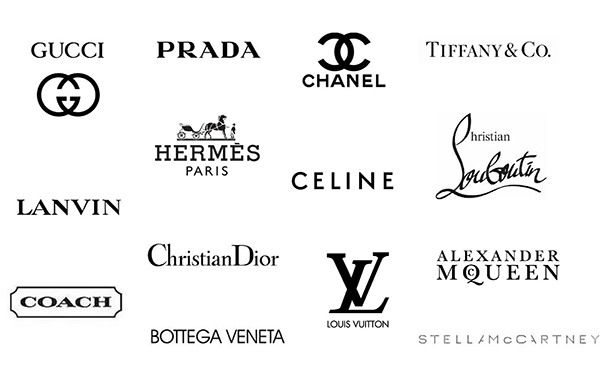For: Amelia Melo (Year 11)
LGB is often associated with high-end and luxurious clothing, and it’s quite rare to walk across a hallway without spotting at least one Louis Vuitton handbag or Dinh Van necklace. Students at LGB wearing designer clothing around campus is a controversial issue that receives lots of attention and is quite frequently talked about. It is an obvious gray area as to whether designer clothing should be banned or allowed to be worn at LGB, since students should be guaranteed freedom of expression, yet kids who cannot afford the same pieces as their classmates may feel unincluded or subconscious peer pressure to dress like their classmates. Here are some arguments as to why designer clothes shouldn’t be prohibited at school:
- The most obvious argument is that of self-expression. Every student at LGB is entitled to self-expression and the freedom to express themselves however they wish, and one of the main ways in which students are able to convey who they are is through their style and clothing. LGB displays plenty of diversity among students, and what better way to stand out and be a diverse individual than through articles of clothing? By restricting designer clothing at LGB, we would be hindering students’ ability to properly express themselves. Once a whole category of brands are banned from being worn on campus, students may struggle with maintaining their self-expression. For example, if a student feels that the unique clothing items and designs of Versace really suit her and represent her character very well, how is she going to feel when Versace can no longer be worn on campus? Self-expression is vital to students of all ages, and it must certainly not be impaired by restricting designer clothing on campus, which students may feel very emotionally attached to and well-represented by. Essentially, students may experience a loss of self-identity and self-recognition if their clothing options are limited.
- How do you define “designer”? It’s very difficult to draw a line as to which brands are designer and not. For example, it’s obvious that Chanel and Dior are luxurious designer brands, but could Kate Spade be considered one? It’s a gray area. How are we to measure whether an item of clothing is designer or not? Would we implement a price limit? Would we publish a list of forbidden brands? If so, how do we decide which brands to put on that list? It’s very tricky to classify a brand as designer/luxurious or not, so what is a metric that we can use to establish whether or not a brand is “designer”?
- Oftentimes it isn’t the brand itself that poses an issue, but rather the fact that the name of the brand is so flashy and heavily visible on the article of clothing. For example, if a plain white shirt has “OFF WHITE” written in big bold lettering across the front and back, students may feel pressured to buy from this brand, but what if that same student were to buy another off white hoodie where the brand name is out of sight? Would the same issue be generated? I don’t think so, and so perhaps the issue doesn’t lie within an article of clothing BEING designer, but rather how evident and exposed the name of the brand is. Also, similar to my previous point, how would we then measure the size of brand labelling that begins to pose an issue? Do we have to measure the diameter and length of the displayed brand name? To summarise my argument, maybe it’s less about designer clothing and more about how visible the brand name is to the eye. This may be the underlying root of the issue.
- Designer clothing is fine and acceptable with good intentions, as long as you are not trying to show off, brag, or prove something to someone. LGB simply needs to ensure that it’s students aren’t wearing things such as Balenciaga and Givenchy, simply to boast.
Each student and parent can choose what they spend their money on, and the school shouldn’t tamper with that. It’s a student’s right to dictate where their expenses are allocated. Perhaps one family focuses more on quality clothing, rather than having a nicer car, and so a student with more average and affordable clothing could be pulling up to school every day in a much more luxurious car or perhaps take more extravagant holiday vacations. Each individual likes to manage their wealth differently.
Against: Juliane Deslisle-Pye (Year 13)
As students at an international private school, I think the question of whether wearing designer clothing in class is acceptable cannot escape our attention.
Most people would define designer clothing as expensive or luxurious, pertaining to wealthier people and usually accompanied by a label. That label could be Dior, Balenciaga, Prada…you’ve heard of them.
In Geneva, I believe it isn’t uncommon to see people wearing designer clothing wherever you go, be it by the lake or in town, and that stops being surprising after a few months living here. Of course, this isn’t the case everywhere, and I think everyone is well aware of that. I think it’s fair to say that the standard of living is very high in Geneva, and that anyone attending our school has the means to own at least one article of designer clothing, but does that mean it should be done at school?
It’s possible that if you were to ask students if they are bothered by the designer clothes they see every day, the majority would answer no. But isn’t that because we’ve become accustomed to it? At most other schools, the implications of carrying a designer purse aren’t even relevant, because students wouldn’t normally be given the opportunity to purchase such items. Nevertheless, our school is different. Many of us could come to school wearing these brands if we wanted to.
I’ve never had a real issue with people who wear any specific type of clothing: you can wear whatever you’d like as far as I’m concerned. However, that can’t be said for everyone; I’m certain that many people are made uncomfortable by the fact that they see a pair of designer shoes walking by them in the halls, or in the stairs, not because the article of clothing makes them feel uneasy, but the fact that they’re not wearing it, too. It is a well-known fact that people compare themselves to others; it’s probably safe to say that we do it every day. And that’s where designer clothing becomes an issue. If you think about it, it isn’t about the clothes, but what they represent; they represent money to most, but overall they evoke a certain lifestyle that not everyone has access to.
The question remains: Should designer clothes be worn at school? I feel that the safer answer, when considering the many students at our school and every school for that matter, is no. Despite the higher-than-average income of the parents of LGB’s students— of our parents— I believe one must take others into consideration. You never know if what your classmate wears to school every day is one of their biggest sources of insecurity, simply because they feel the need to keep up with the fashion they observe on their own classmates. Even if you wear designer clothing only because you appreciate them and not to send a message of superiority, they can be the origin of much stress in teenage students, stress that could be avoided.
On top of this, is school really the place to wear fancy and expensive dress? I think a classroom isn’t the appropriate setting for designer clothes, because it’s a learning environment, where you come to learn about the world in an unbiased atmosphere. If you want to wear those articles of clothing that may be special to you, you are free to do it outside of school, where you can really show them off to the world without perhaps troubling a fellow student. At school, there shouldn’t be a distinction between individuals based on their appearance, clothing, or more generally their economic background, because it’s a place where we are equal, learning with the same goals. Inequality will always be present in our day to day lives in some fashion, but if we can limit it as much as we can in the place we go to develop our minds, then isn’t that a commendable thing?
Wearing high-end clothing at school probably shouldn’t be problematic because the way you dress shouldn’t impact others, and I know that’s certainly what you’re thinking when reading this article, but sadly that isn’t the case. Think about your fellow classmate, what comes first, them or that new pair of shoes you purchased?


